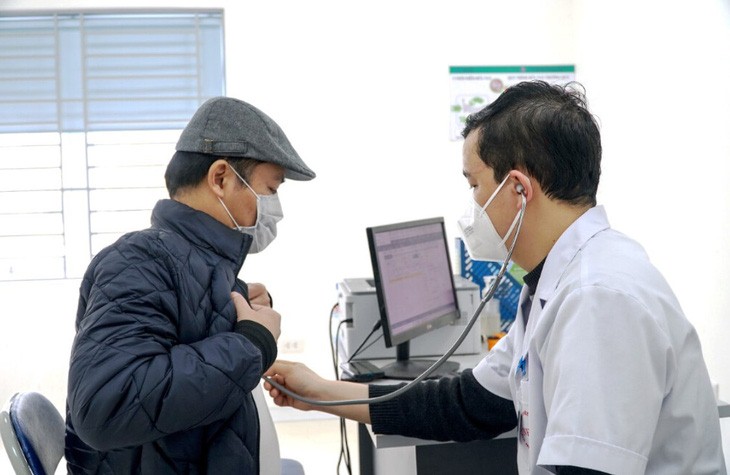The life expectancy of men and women in Vietnam ranks fifth and second, respectively, in Southeast Asia but Vietnamese people have to live with diseases for a longer time than those in other regional countries, for 10 years on average, according to the World Health Organization and the Vietnamese Ministry of Health.
The World Health Organization reported that Vietnamese people’s average life expectancy increased to 73.7 years before inching down to 73.6 in 2021 due to the COVID-19 pandemic.
The extended time they spend suffering from diseases significantly affects their quality of life.
There are three key reasons for the prolonged illnesses of the Vietnamese people, namely nutrition, lifestyle, and environmental factors, according to experts.
As for nutrition, some 59 percent of the population do not eat enough vegetables and fruits.
Up to 78 percent of the Vietnamese always or usually add salt or salty spices to their dishes.
An average Vietnamese adult consumes 8.1 grams of salt per day, while the World Health Organization recommends people use less than five grams of salt daily, said doctor Nguyen Trong Hung from the National Institute of Nutrition.
The environment in many places in Vietnam is severely polluted, which results from people’s low awareness, which is another cause of diseases.
Vietnamese people mainly suffer from non-communicable diseases, such as cardiovascular disease, cancer, and diabetes.
Vietnam is facing alarmingly increasing non-communicable diseases, which currently account for up to over two-thirds of the number of patients nationwide and are the leading cause of deaths, the Ministry of Health reported.
Two key reasons leading to such non-communicable diseases are smoking and obesity.
A national survey conducted by the Ministry of Health in 2021 showed that nearly 21 percent of the Vietnamese people aged 15 and older smoked cigarettes, and one-third of the population used to be exposed to second-hand smoking.
Doctor Do Hung Kien from K Hospital in Hanoi said smoking is the number-one risk factor for lung, bladder, throat, and oral cavity cancer.
Besides active smoking, passive smoking, such as second-hand smoke, also harms human health.
Smoking results in cardiovascular diseases, strokes, diabetes, osteoporosis, and a risk of tuberculosis.
Nearly two-thirds of Vietnamese men consume alcoholic drinks.
Meanwhile, nearly a quarter of the population do not engage in sufficient physical activity and close to one-fifth of the Vietnamese are overweight or obese.
Obesity is the cause of over 200 diseases, including cardiovascular diseases, diabetes, cancer, and fatty livers, among others, said Associate Professor Nguyen Anh Tuan, head of the department of digestive surgery at the Hanoi-based 108 Military Central Hospital.
Tuan noted that obesity has become an epidemic, so solutions to control the disease are needed.
Locals’ awareness of the prevention of non-communicable diseases remains low, according to the Ministry of Health.
Meanwhile, some localities have yet to set aside at least 30 percent of the healthcare funding for preventive healthcare to improve medical service quality.
As a result, the ministry proposed screening, early diagnosis, and managing chronic diseases, together with a reasonable financial investment, to help Vietnam prevent, detect, and treat non-communicable diseases, reducing treatment costs and other negative consequences.
Like us on Facebook or follow us on Twitter to get the latest news about Vietnam!



















































